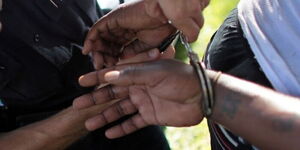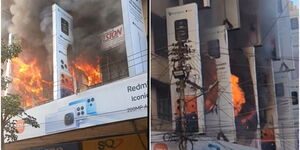Kenya Revenue Authority has announced a fresh crackdown in the alcoholic drinks sector after several manufacturers complained of underhand practices in the industry.
A report by People Daily on Thursday, April 15, indicated that the taxman had stepped up its crackdown after discovering that a number of retailers were selling alcohol with fake excise stamps.
The manufacturers complained that 28 players in the industry were selling alcohol at Ksh150 per 250ml bottle. A typical bottle containing 40% alcohol content retails between Ksh200 and Ksh400 depending on the brand.
The complainants explained that with hefty taxation in the industry including Ksh66 excise duty per bottle and high production costs, it was impossible to realise profits.
The sector is also charged a separate excise stamp as well as Ksh16.40 value-added tax for each bottle.
After the complaint, the taxman realised that it was losing billions of shillings every month from the sector and issued a number of directives to players in the sector.
First, it revised the minimum price per bottle in an effort to level the field but this was met with a lot of resistance from industry players.
“Based on the review, products in the market with a selling price below Sh150 per bottle of 250ml at 40 per cent alcoholic volume are considered non-compliant in the tax based on the minimum cost structure.
"This will bring a level playing ground for all the sector players in the market which will benefit both the players and the revenue payments for the government,” read a statement issued by Deputy Commissioner, Domestic taxes Enforcement Division Ann Irungu.
Irungu further announced that KRA was pursuing other ways of streamlining the sector that is likely to impact the players immensely.
This directive comes as KRA struggles to expand the country's tax base to fill budgetary deficits while the alcohol industry continues to face challenges over sales.
In March, President Uhuru closed all bars and reduced the operating hours of wines and spirits hence reducing sales by industry dealers and distributors.
Several bars and clubs have closed permanently in Nairobi since Covid-19 pandemic hit the country in March 2020.












